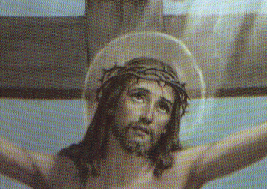
"Blessed the poor"
The evangelist
Matteo introduces Jesus as the Messiah announced by the prophets (1,20-23) and
in the five great discourses (Mt 5,1-7,29; 9,37-11,1; 13,1-52; 18,1-35;
24,1-25,46) that they characterize deeply its Gospel, puts very well in evidence
the attitude of Jesus "Teacher" and its teachings.
Among the discourses of Jesus it occupies a role what is called
comumenemente the Sermon on the mount (Mt 5,1-7,29).
Above a hill, Jesus presents himself as a new Mosè that the new law
promulgates in which the ancient alliance finds its conclusion (Mt 5,17-20).
This law finds its more complete synthesis in the precept of the love: "Everything
what you want that the men do to you, also you do it to them: this in fact it is
the Law and the Profeti"(Mts 7,12).
Once more an original datum it emerges in the words and in the
actions completed by Jesus. He doesn't teach as the scribes and the fariseis but
he speaks in the proper name: "You have intended that was said… I tell you
instead"; and he shows the radical character of the divine wish, asking to his
disciples to imitate same God, becoming perfect as him (Mt 5,21-48) .
Seeing the insane one, Jesus climbed on the mount and, put him to
sit, his disciples they drew near him. Taking then the word, he taught them
saying:
<<Blessed the
poor men in spirit, because of them it is the kingdom of the skies. Blessed the
afflicted ones, because they will be consoled. Blessed the myths, because they
will inherit the earth. Blessed those that are hungry and thirst of the justice,
because they will be satiated. Blessed the merciful ones, because they will find
mercy. Blessed the pure ones of heart, because they will see God. Blessed the
operators of peace, because they will be called children of God. Blessed the
persecuted for cause of the justice, because of them it is the kingdom of the
skies. Blessed you when they will insult you, they will persecute you and, lying,
they will say badly every sort of against you for my cause. Cheer you and you
exult, because great it is your reward in the skies. This way in fact they have
persecuted the prophets before you >>.
It is from the western hills of the lake
of Tiberias that Jesus solemnly announces the Kingdom of God and proclaims those
beatitudes that constitute the synthesis of the whole Gospel pointing out a new
rout of navigation, in the sea of the life, to the man of every time.
"Jesus pronounces definitive words, that they know how to translate,
with vigor prophetic and great serenity, putting into effect itself of the Reign.
Its words are convincing. It is not a simple prophet, that speaks. His is the
decisive word of God in the history: <<… it was said to the ancient ones…
But I tell you… >>. God intervenes, he operates by his compassionate
power, careful to the weeping, to the poverty, to the hunger, to the injustices.
Because God is Father - here is the fund of the great announcement. For him, the
life of every creature is precious as that of a son…He is a good Father and
nearby, that invites all to participate to its same life: "The Kingdom of God is
yours! ". It's an absolute announcement, not conditioned by nothing; simple love
that is given. And nevertheless also proposal of life. In this, Jesus is clear:
God storms in the history to save, but through the renewed life of his children.
It is urgent to take a stand; it is the moment of the brave and hard-working
choices. Not certain in the self-righteous sense of an inflexible practice of
the Law, disintregrated in innumerable precepts, but simplifying radically his
own behavior on the base of an only principle: to imitate God Father, in his
love toward all the men(Mauro Làconi, Felt happy the poor men, in History of
Jesus, and. Rizzoli, pag. 486 ses.).
From the hill that it offers a splendid view of
Cafarnao and of the lake, Jesus proclaims the evangelical beatitudes. The
sanctuary currently place on the hill perpetuates the memory of this upsetting
message.
Egeria, Latin nun that in the IV century completes a pilgrimage in
the Holy Land, so she writes among 393 and 396: "Not away from Cafarnao…sul near
mountain there is a cave, climbing from which the Lord pronounced the beatitudes".
The study of the topographical data of the zone and the recent archaeological excavations have allowed to reconstruct with precision the description of Egeria. In 1935, Father Bellarmino Bagatti has brought the ruins of the ancient sanctuary remembered by Egeria and site above the cave to the light that riale to the IV century.
TO THE DISCOVERY OF JESUS OF NAZARETH
| We ask, heartily, to the Government of
Israel to prevent the construction of the mosque near the Basilica of Annunciation to
Nazareth, in the Galilea. The place is particularly dear to the whole Christianity and the vicinity of an islamic mosque, could cause dangerous frictions between the pilgrims of diverse religions, besides to discourage christian pilgrimage every year |